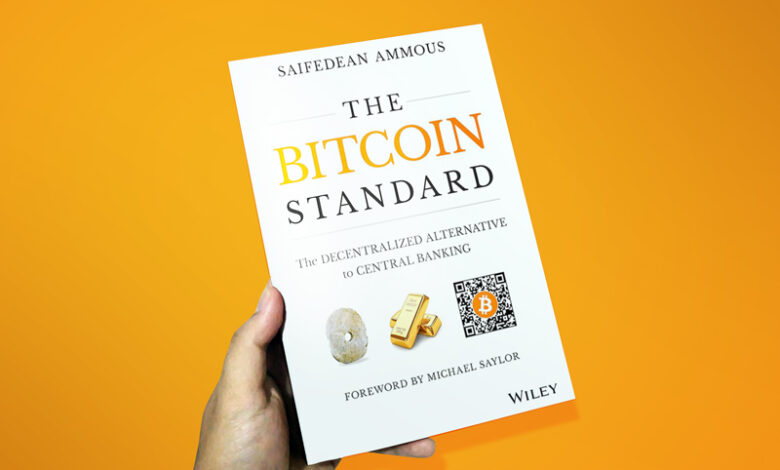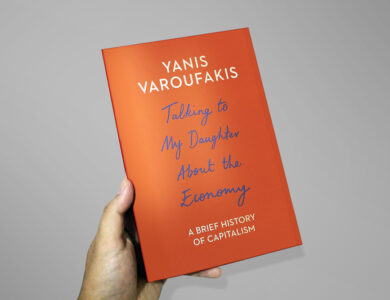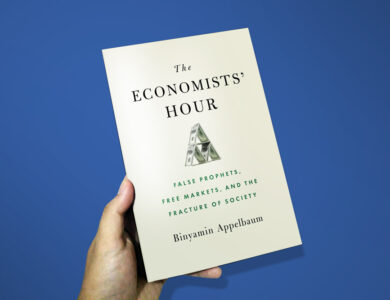The Bitcoin Standard by Saifedean Ammous
“The Bitcoin Standard” by Saifedean Ammous: A Paradigm Shift in Money and Economics

In a world dominated by fiat currencies and central banks, “The Bitcoin Standard” emerges as a groundbreaking manifesto that challenges conventional wisdom about money, economics, and the very fabric of our financial system. Authored by economist and Bitcoin advocate Saifedean Ammous, this book presents a compelling case for why Bitcoin is not just a digital currency but a revolutionary force that could reshape the global economy.
Author Background:
Saifedean Ammous is an internationally best-selling economist and author. His journey into the world of Bitcoin began with skepticism, but as he delved deeper, he became captivated by its underlying principles. Ammous’s academic background in sustainable development, coupled with his passion for monetary theory, uniquely positions him to dissect the intricacies of Bitcoin’s impact on our global financial system.
In-Depth Summary:
“The Bitcoin Standard” is a comprehensive journey through the history of money, the evolution of financial systems, and the disruptive potential of Bitcoin. Ammous meticulously dissects the intricacies of sound money, emphasizing its crucial role in fostering prosperity and social cohesion. He traces the origins of money from ancient barter systems to the emergence of commodity money, such as gold and silver. Throughout history, societies that adopted hard money—currencies with high stock-to-flow ratios—experienced economic growth, while those relying on easy money faced decline and unrest. Ammous critiques the current fiat currency system, highlighting its instability and susceptibility to crises.
The Quest for Sound Money
Ammous’s exploration begins with a fundamental question: What constitutes sound money? He takes readers on a historical odyssey, tracing the origins of money from primitive barter systems to the emergence of commodity money—such as gold and silver. Throughout history, societies have gravitated toward using commodities with intrinsic value as a medium of exchange. These commodities served as a store of value, unit of account, and medium of exchange, forming the backbone of stable economies.
The Fiat Currency Experiment
The 20th century witnessed a seismic shift away from commodity money. Governments abandoned the gold standard, opting for fiat currencies backed by nothing more than trust in central banks. Ammous contends that this departure from sound money principles led to inflation, currency devaluation, and economic instability. The erosion of purchasing power and the boom-and-bust cycles became the norm.
Enter Bitcoin: Digital Gold
In the wake of the 2008 financial crisis, an enigmatic figure known as Satoshi Nakamoto introduced Bitcoin—a decentralized digital currency based on blockchain technology. Ammous argues that Bitcoin is the ultimate realization of the monetary properties that made gold valuable. Like gold, Bitcoin is scarce, divisible, durable, and resistant to censorship.
Bitcoin as a Store of Value
“The Bitcoin Standard” emphasizes Bitcoin’s role as a store of value. Just as gold has preserved wealth across centuries, Bitcoin offers a hedge against inflation and currency manipulation. Its fixed supply—capped at 21 million coins—ensures scarcity, making it immune to the whims of central banks.
Sound Money vs. Fiat Currency
Ammous draws a sharp contrast between sound money (represented by Bitcoin) and fiat currency. While fiat currencies can be printed at will, Bitcoin adheres to a strict issuance schedule. This scarcity imbues it with value, akin to gold. The book argues that Bitcoin’s digital nature makes it even more portable and divisible than physical gold.
Challenges and Skepticism
Critics argue that Bitcoin lacks intrinsic value and is volatile. Ammous counters by highlighting its growing adoption, robust security, and the network effect. He also addresses concerns about energy consumption and scalability, emphasizing that these challenges are solvable over time.
Analysis:
Ammous combines economic rigor with accessible language, making complex concepts understandable for readers of all backgrounds. His deep understanding of monetary theory and technical intricacies shines through. He dissects the flaws of fiat currencies, emphasizing their inflationary nature and the erosion of purchasing power. In contrast, Bitcoin emerges as a digital gold—a scarce, divisible, durable, and censorship-resistant store of value.
Themes and Insights:
Scarcity and Sound Money: Ammous underscores the importance of scarcity in maintaining stable economies. Bitcoin’s fixed supply ensures its value over time, akin to gold.
Decentralization: Bitcoin challenges traditional banking systems, empowering individuals with financial sovereignty.
Economic Freedom: The book advocates for freedom from government-controlled currencies, emphasizing long-term planning and investment.
Writing Style:
Ammous’s writing is clear, engaging, and accessible. He weaves historical context, economic principles, and technical details seamlessly. Whether you’re a cryptocurrency enthusiast or a curious learner, his insights resonate.
Recommendation:
“The Bitcoin Standard” is a must-read for anyone interested in the future of money. It invites readers to rethink the foundations of our financial system. As Saifedean Ammous eloquently puts it: “In Bitcoin, we have a money that is harder than gold, with a fixed supply, and that no one controls.”
Conclusion:
“The Bitcoin Standard” is a thought-provoking exploration of money’s evolution and the disruptive potential of Bitcoin. Whether you’re a seasoned investor or a curious observer, this book invites you to rethink the foundations of our financial system. As the world grapples with economic uncertainty, Bitcoin stands as a beacon of hope—a digital standard that transcends borders, governments, and ideologies.
Remember, as Saifedean Ammous eloquently puts it: “In Bitcoin, we have a money that is harder than gold, with a fixed supply, and that no one controls.”



